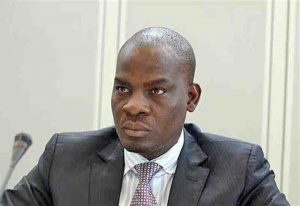By Godwin Owusu Frimpong
As the political landscape gears up for December 7, former President John Dramani Mahama has resurfaced with promises that seem to reshape his earlier stances on education policy. This shift raises pertinent questions about the integrity of his commitments and whether he has truly reconciled with his prior critiques of similar initiatives.
During the launch of his manifesto at the University of Education, Winneba, Mr. Mahama made bold declarations, vowing to implement free tertiary education for Persons With Disabilities (PWDs) and abolish the teacher licensure examination, among other pledges. Yet, this is the same figure who previously condemned policies that he now seems to adopt with fervor, prompting inquiries about his ideological consistency.
What led Mr. Mahama to pivot so dramatically in his approach? Has he truly come to understand the complexities and needs of Ghana’s educational framework, or does this represent a mere electoral strategy aimed at winning over vulnerable demographics? Observers may wonder if he believes Ghanaians lack the political acumen to scrutinize the sincerity behind his claims.
In the past, Mr. Mahama’s administration faced criticism regarding the sustainability and execution of educational policies. His recent promises raise an eyebrow—what assurances do we have that these initiatives will be any different from those that were previously ridiculed? The “No-Academic-Fee” policy for first-year students and plans for Tertiary Endowment Funds sound ambitious, yet the history of implementation speaks volumes. Are these promises grounded in a genuine commitment to education, or do they simply serve as placations to galvanize support ahead of the polls?
Mr. Mahama’s assertion to abolish mandatory national service for teacher trainees and enhance financial support through loan schemes suggests a broader campaign strategy that aligns with contemporary sentiments around educational reform. However, this begs the question: will these proposed changes serve the greater good or merely serve as a populist tactic to garner votes?
As Ghanaians prepare to exercise their democratic right, a critical evaluation of his promises is essential. Is this an instance of genuine evolution in thought, or is it a reflection of desperation for political redemption? Considering the political landscape, voters must discern whether to trust a candidate whose narrative has shifted so notably and what these changes mean for the future of Ghana’s education system.
Only time will tell if Mahama’s renewed vision for education is sincere or simply a temporary campaign charade. As we approach the elections, the onus remains on Ghanaians to navigate the complexities of political rhetoric and demand accountability from their leaders.
Godwin Owusu Frimpong




